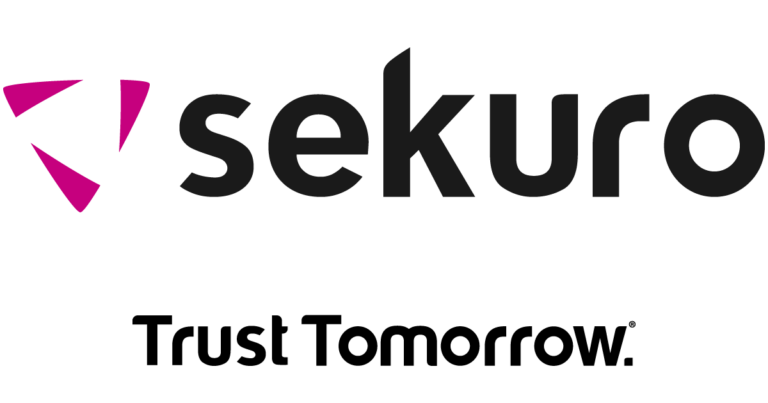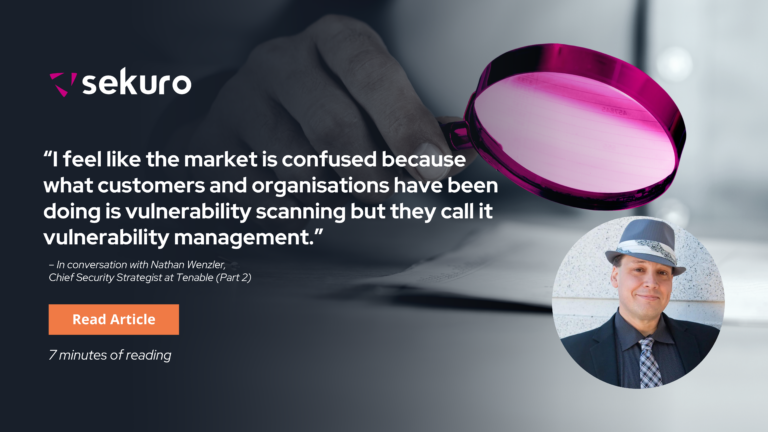Noel Allnutt, CEO at Sekuro, explains the importance and benefits of implementing an agile security strategy in FY24 and why it is key on the path to cyber resilience.
As FY23 comes to a close, and as cyber-attack threats continue to increase, one thing has become clear: we must work towards a cyber resilient future.
Every effort we make today and tomorrow will count towards Minister Clare O’Neil’s goal of becoming a cyber secure nation by 2030, as well as to build our strength to respond to and withstand threats as they become more prevalent and more sophisticated. Every step we take will ensure business continuity into the future.
Earlier in the year, I mentioned the importance of taking time to pause. Upon reflection as we end the financial year for 2023, there is a way that I see a positive future for organisations in FY24: adopting an agile security strategy with a strong focus on business benefits.
An agile security strategy is an approach to cyber security that emphasises flexibility, adaptability and responsiveness in the face of evolving threats and changing business needs. With this strategy, the focus is on continuous monitoring, proactive threat detection, and swift response to security incidents. An agile strategy can address the limitations of a more traditional strategy while it aims to integrate security practices throughout the entire lifecycle of a business, rather than treating security as an afterthought.
In order to understand the importance and relevance of an agile business strategy today, let’s look at three ways businesses can benefit by adopting one:

1. Increased Operational Resilience and Cost Efficiency
Organisations that embrace an agile security strategy can achieve increased operational resilience, allowing them to better withstand and recover from security incidents. By implementing proactive security measures, such as continuous monitoring, risk assessment, and threat intelligence, organisations can minimise the impact of cyber threats on their operations. This reduces the likelihood of costly disruptions, downtime, or reputational damage.
Agile security strategies emphasise the principle of risk-based decision-making. By adopting a targeted and prioritised approach to security investments, organisations can allocate their resources more efficiently. This ensures that investments align with the most critical business functions, protecting the core assets while avoiding unnecessary expenditures on low-risk areas. As a result, organisations can optimise their security budget and achieve a higher return on investment.
Furthermore, an agile security strategy promotes a proactive approach to security that focuses on prevention rather than reactive measures. By identifying and mitigating potential vulnerabilities before they are exploited, companies can save substantial costs associated with incident response, remediation, and legal consequences. This preventive mindset helps businesses avoid financial losses and maintain their profitability.
2. Enhanced Customer Trust and Competitive Advantage
Organisations that prioritise agile security strategies can build stronger customer trust and gain a competitive edge in the market. In today’s digital landscape, customers are increasingly concerned about the protection of their personal information and the security of their transactions. By demonstrating a commitment to robust security practices, organisations can instil confidence in their customers, leading to increased loyalty and customer retention.
Agile security strategies enable companies to meet and exceed regulatory compliance requirements effectively. Compliance with data protection and privacy regulations, such as GDPR or CCPA, reassures customers that their information is handled responsibly and securely. This compliance readiness can act as a competitive differentiator, attracting customers who prioritise privacy and data security in their buying decisions.
Moreover, an agile security strategy fosters a culture of transparency and accountability within the organisation. By prioritising security awareness training for employees and implementing clear communication channels, organisations can demonstrate their commitment to protecting customer data and maintaining their privacy. This ethical approach to security helps businesses build a positive reputation, which can lead to increased market share and partnerships.
Agile security strategy fosters a culture of transparency and accountability within the organisation.
3. Facilitated Innovation and Business Growth
Adopting an agile security strategy can unlock opportunities for innovation and business growth. By implementing robust security measures, organisaitons can confidently embrace emerging technologies, such as cloud computing, IoT, or AI, without compromising their security posture. This enables organisations to leverage the benefits of digital transformation, expand their product offerings, and explore new markets.
Agile security strategies emphasise the importance of collaboration and knowledge sharing across departments. By involving key stakeholders, such as IT, legal, and business teams, in security decision-making processes, organisations can ensure that security considerations are integrated into business strategies from the outset. This alignment facilitates a smooth and secure implementation of new initiatives, accelerating time to market and supporting innovation.
Furthermore, an agile security strategy promotes a proactive approach to risk management. By identifying potential security risks associated with new business opportunities, companies can make informed decisions and take calculated risks. This agility and adaptability in risk assessment enable businesses to seize growth opportunities while effectively managing and mitigating potential security challenges.
So as we move the needle towards greater cyber resilience, let us not forget the importance of greater flexibility and adaptability. There needs to be the willingness to let go of old structures and be able to pivot and change our approaches to security just as threats continue to evolve. The benefits are there. Here’s to greater resilience in FY24.

Noel Allnutt
Co-Founder and Managing Director, Sekuro
Noel is a driven and award-winning IT leader. He specialises in building teams that enable companies to create a secure and sustainable competitive advantage in the digital economy. Noel also hosts the ‘Building Resilience Podcast,’ which explores the world of sport and deconstructs the tools and ethos of world-class athletes that can help create growth and optimise business and life.






